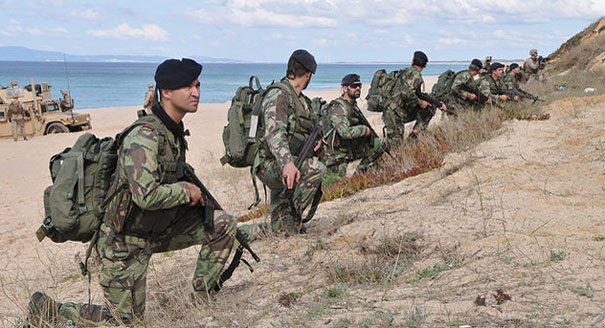Europe is facing a flow of refugees not seen since the end of World War II.
Then, over 12 million people, many ethnic Germans from Poland, Czechoslovakia, and other Eastern European countries were either expelled from their homelands or fled to Germany as the Communists filled the political vacuum left by the Nazis. Those numbers don’t include the many millions more who crisscrossed a war-torn European continent to seek shelter and security.
Today, Germany, Austria, and, especially, Greece and the Western Balkan countries are trying to cope with huge flows of refugees as tens of thousands of people, young and old, flee the war in Syria and try to make their way to Europe.
And that is what this part of Europe is facing: a civil emergency that requires an emergency response. That is what NATO should be providing. But ever since the beginning of the refugee crisis many months ago, NATO has remained on the sidelines, almost indifferent to a problem that has the potential to undermine the stability of some of the countries in southern Europe.
Some could argue that these kinds of civilian crises have nothing to do with NATO. That is not the case. The alliance has a Civil Emergency Planning Committee whose goal is unambiguous: “Civil Emergency Planning provides NATO with essential civilian expertise and capabilities in the fields of terrorism preparedness . . . humanitarian and disaster response and protecting critical infrastructure.”
NATO also has a Euro-Atlantic Disaster Response Coordination Center based at the alliance’s headquarters in Brussels. The center is supposed to work closely with the UN Office for the Coordination of Humanitarian Affairs and other international organizations. So far, this center has not been catapulted into action.
And the alliance has a Civil Emergency Planning Rapid Reaction Team that is meant to evaluate civil needs and capabilities to support a NATO operation or an emergency situation, which is what the Western Balkans are now facing. No evidence of that being activated either.
It’s not as if NATO didn’t have some experience in supporting civil emergencies. In August 2005 after Hurricane Katrina, NATO transported 189 tons of relief and emergency supplies to the United States. In the same year, after a request from Pakistan to assist after the huge earthquake in the Kashmir region, NATO airlifted 3,500 tons of supplies and sent engineers, medical units, and specialized equipment. The alliance helped Pakistan again in 2010 to cope with the floods of that year.
NATO can claim it has other bigger and more important issues to deal with, specifically increasing the alliance’s ability to defend itself in the wake of Russia’s aggression in eastern Ukraine and its annexation of the Crimean Peninsula in March 2014.
Since then, NATO has stepped up its air defenses in the Baltic states and Poland, where it has also conducted exercises. More recently, on October 19 in Italy, NATO began Trident Juncture, a military exercise that consists of 36,000 troops, 140 planes, 60 ships, and 30 nations and will last until early November 2015.
“Trident Juncture is the largest NATO exercise for over a decade,” said NATO Deputy Secretary General Alexander Vershbow at the operation’s opening ceremony. “Trident Juncture will increase our readiness and our ability to work together, including with our partners. It will demonstrate that NATO is capable of responding to threats from any direction.”
In the current refugee crisis, the governments in the Western Balkans can all agree that they have gone beyond dealing with a threat. The unremitting flow of refugees passing through or stranded in their countries is a reality that requires a very special response.
Since the security and armed forces in these countries are poorly equipped and trained to deal with such emergencies—another story in itself—NATO could compensate these shortfalls in several ways.
First of all, it could help bring security to the Europe’s borders. This does not mean closing the frontiers. It means providing logistics and personnel to ensure stability for the authorities and the refugees.
The alliance could also offer emergency facilities such as field hospitals and emergency housing. It could work with the Office of the UN High Commissioner for Refugees in registering the migrants and issuing them with identity papers. And it could provide transportation to take the refugees to other countries in Europe.
As it is, European governments should be ashamed of the wretched conditions the refugees have to endure in Croatia and Slovenia, both members of the EU and NATO. Since these countries, as well as Greece, have been unable to cope, they should have called in NATO, which they are entitled to do.
A NATO role in helping with a refugee crisis that shows no sign of ending could take the immense strain off the Western Balkan countries. Such a role could also improve NATO’s image.
In most cases, publics across Europe have little idea what NATO is about or why its member governments should spend more on defense. Long-overdue alliance help for the refugees could change that.
Photo by Allied Joint Force Command Brunssum, used under CC BY-SA 2.0 / Cropped from original






.jpg)